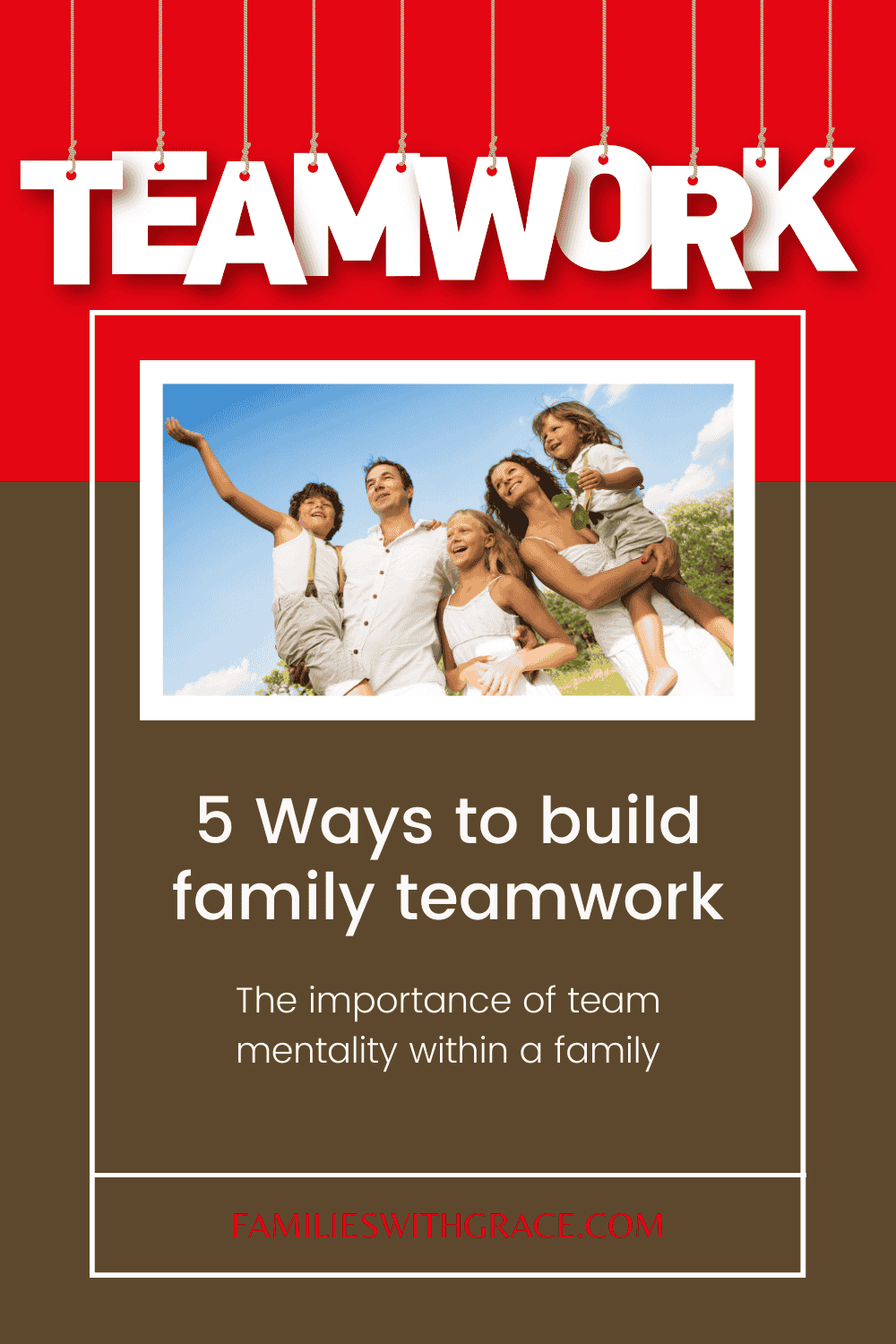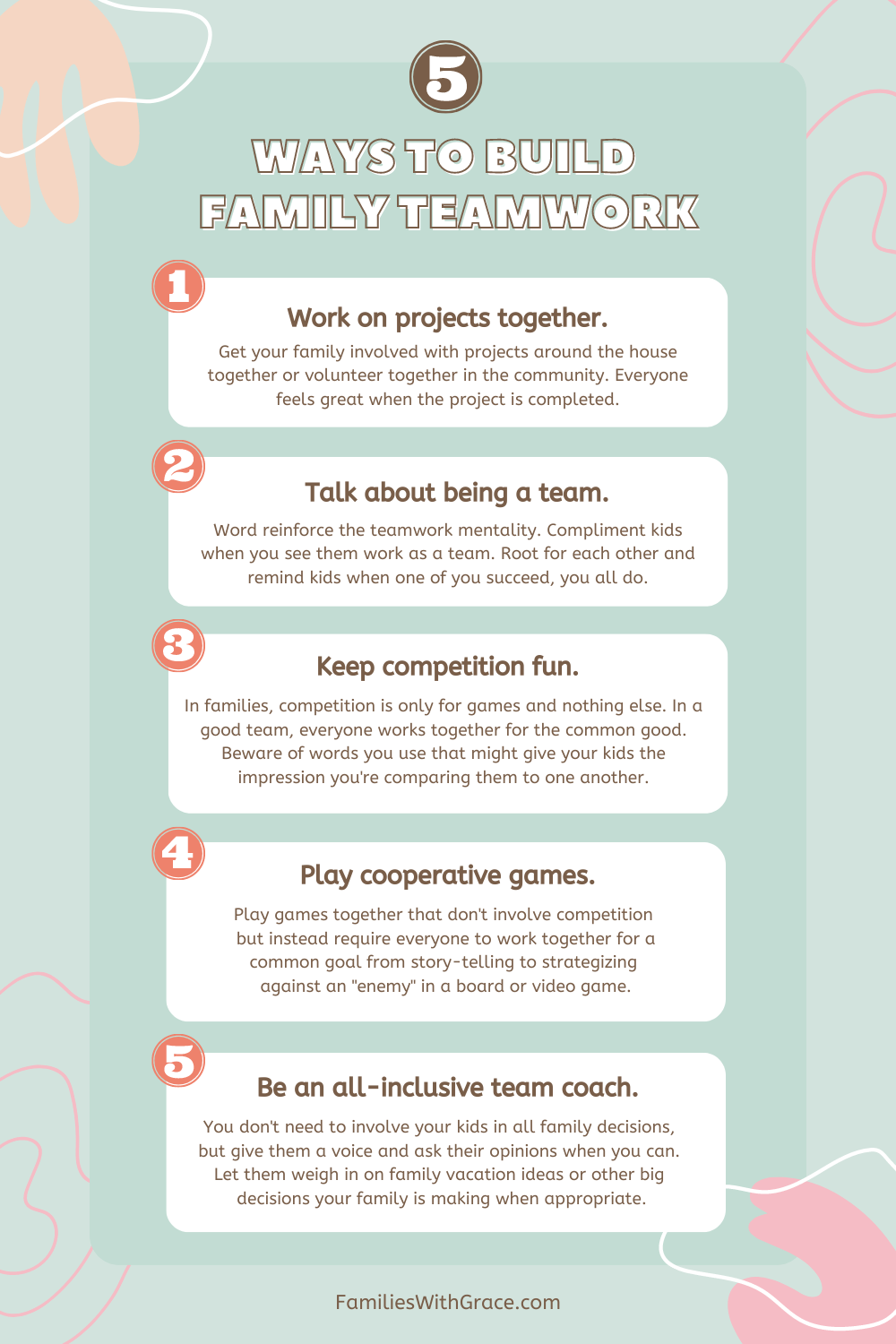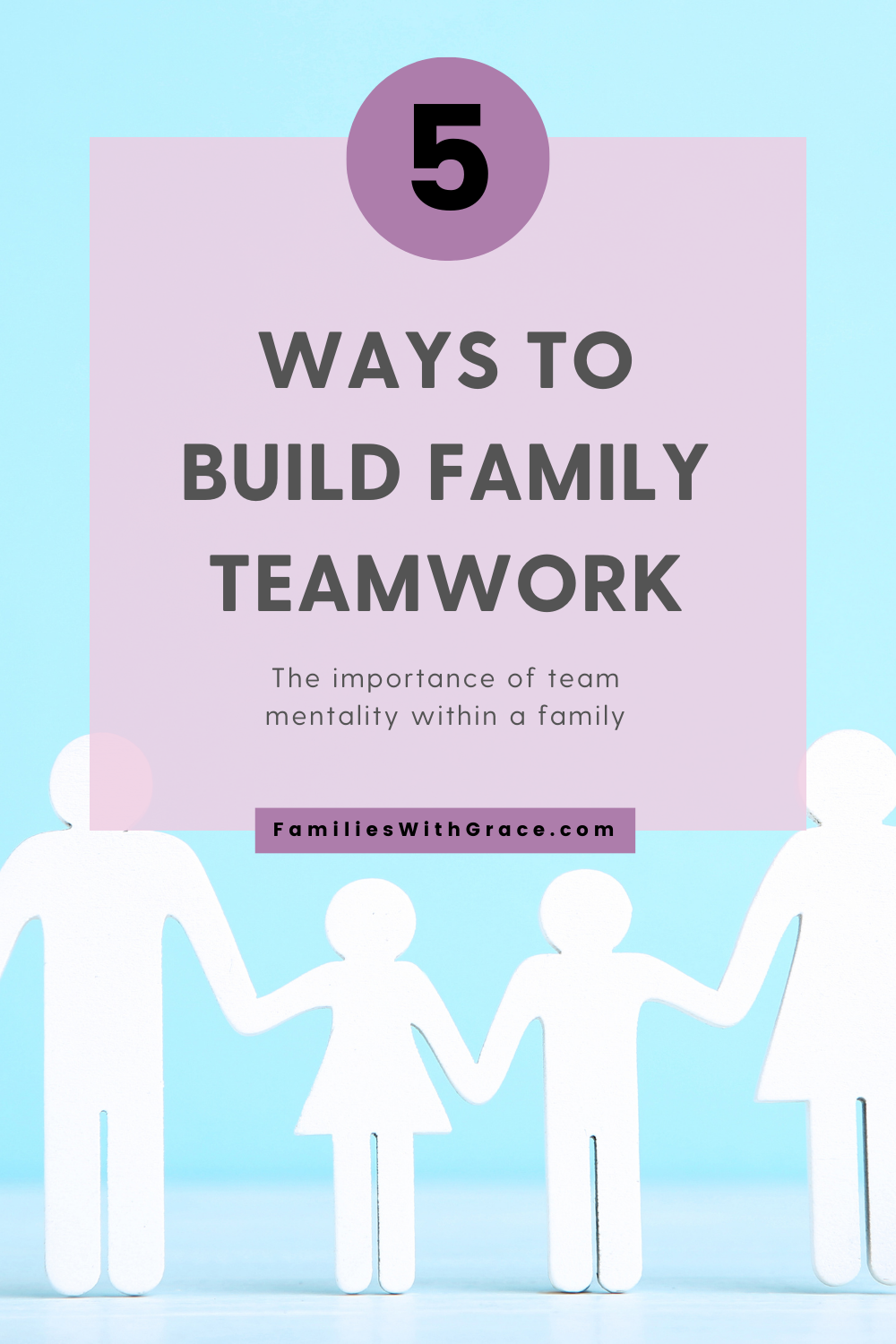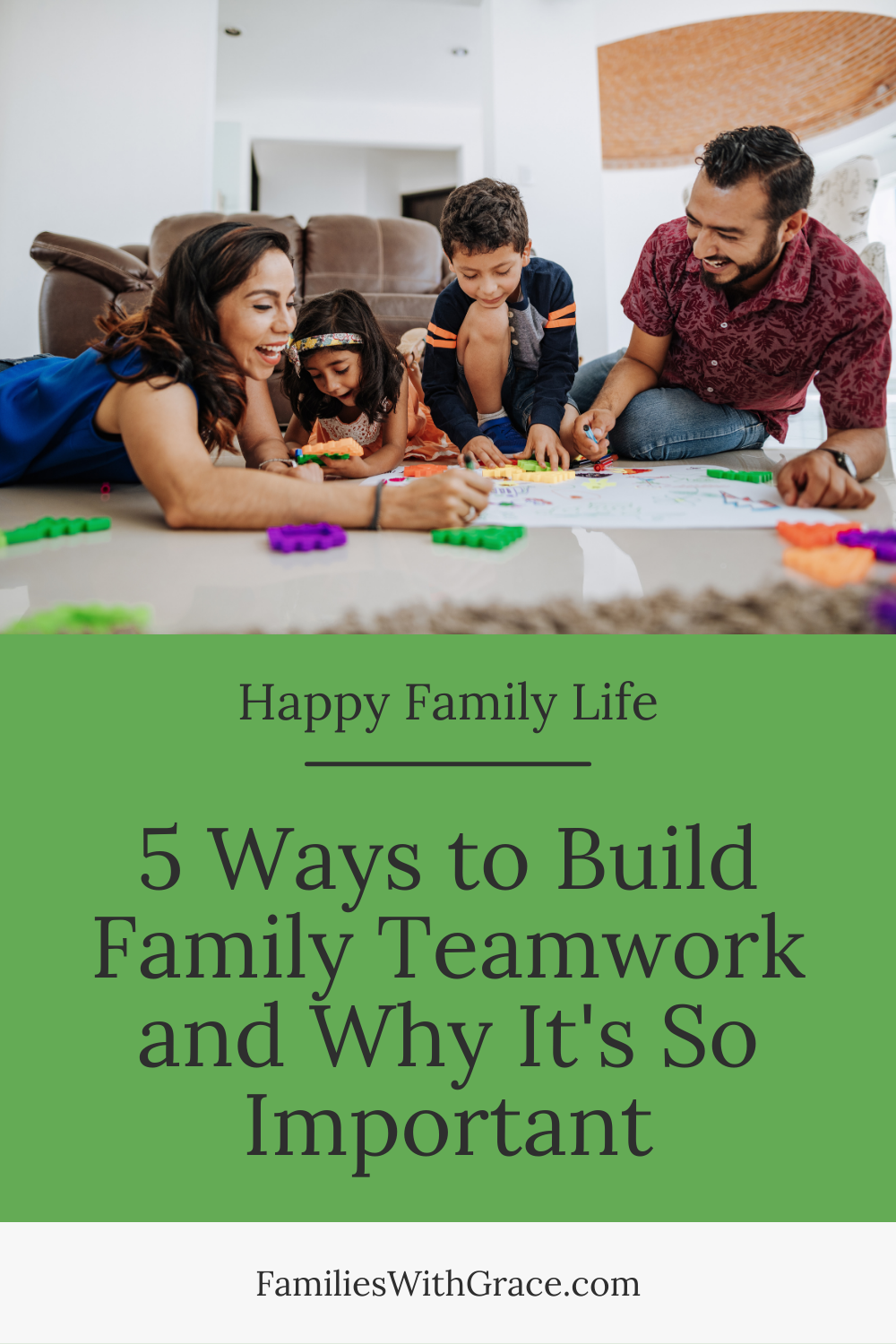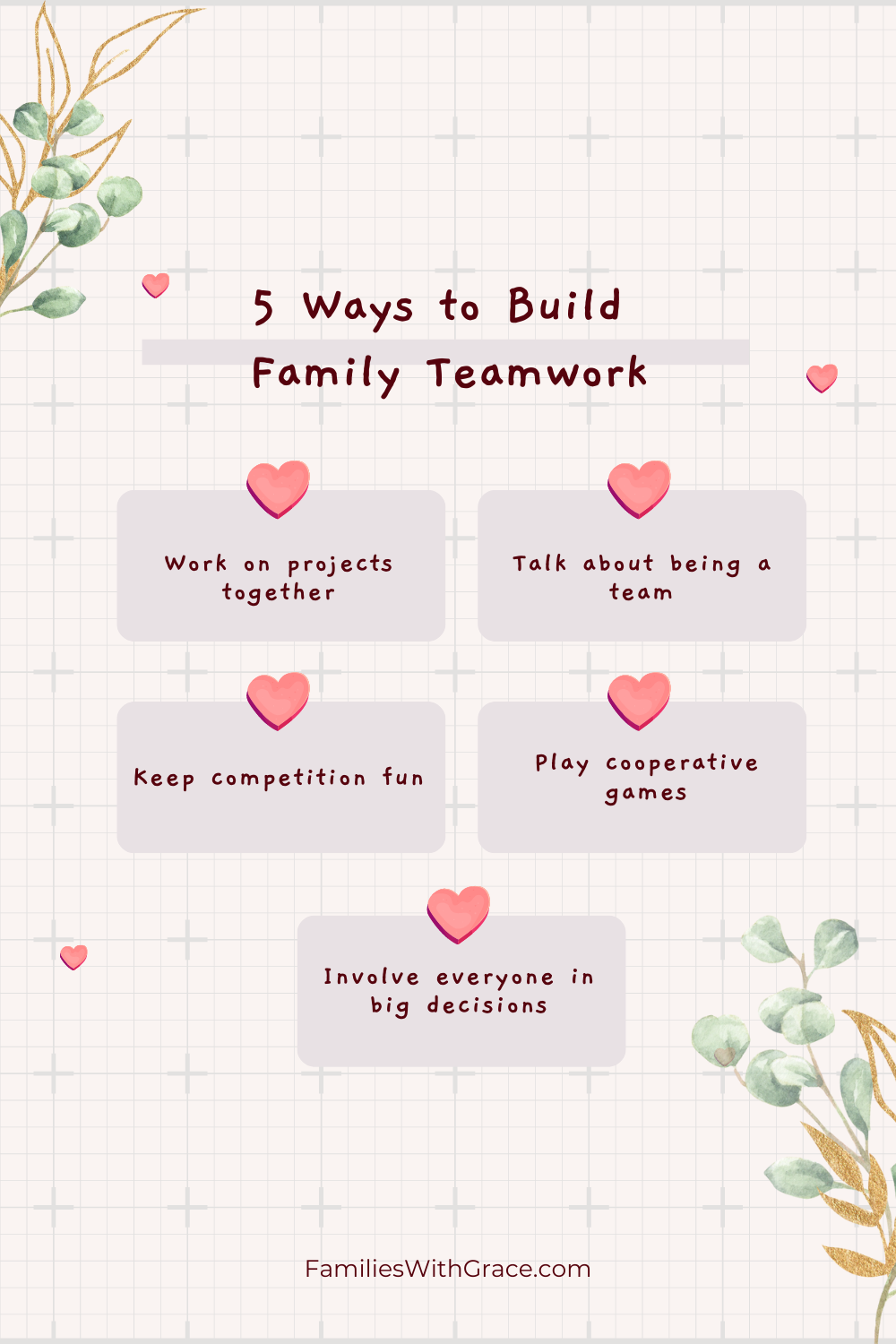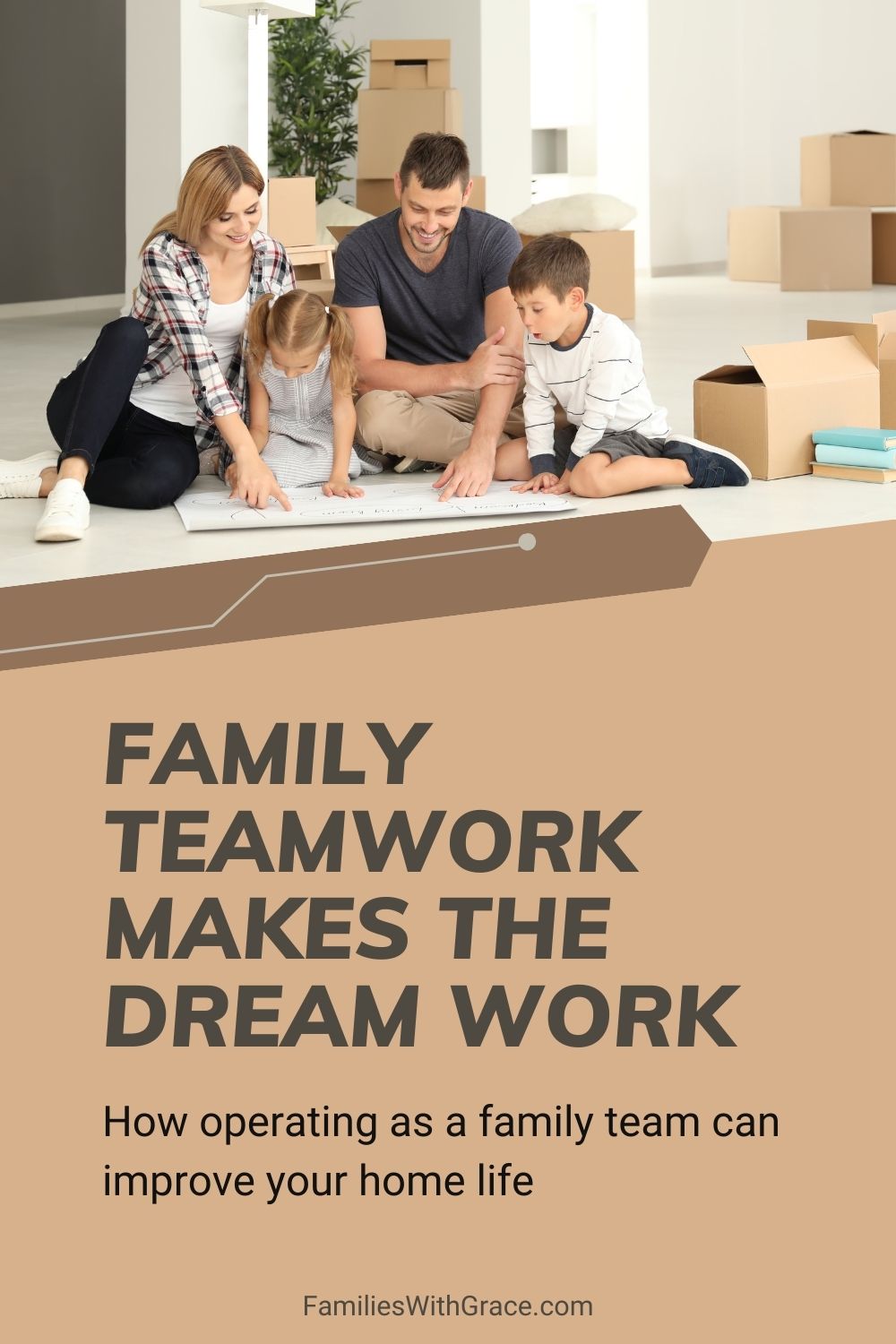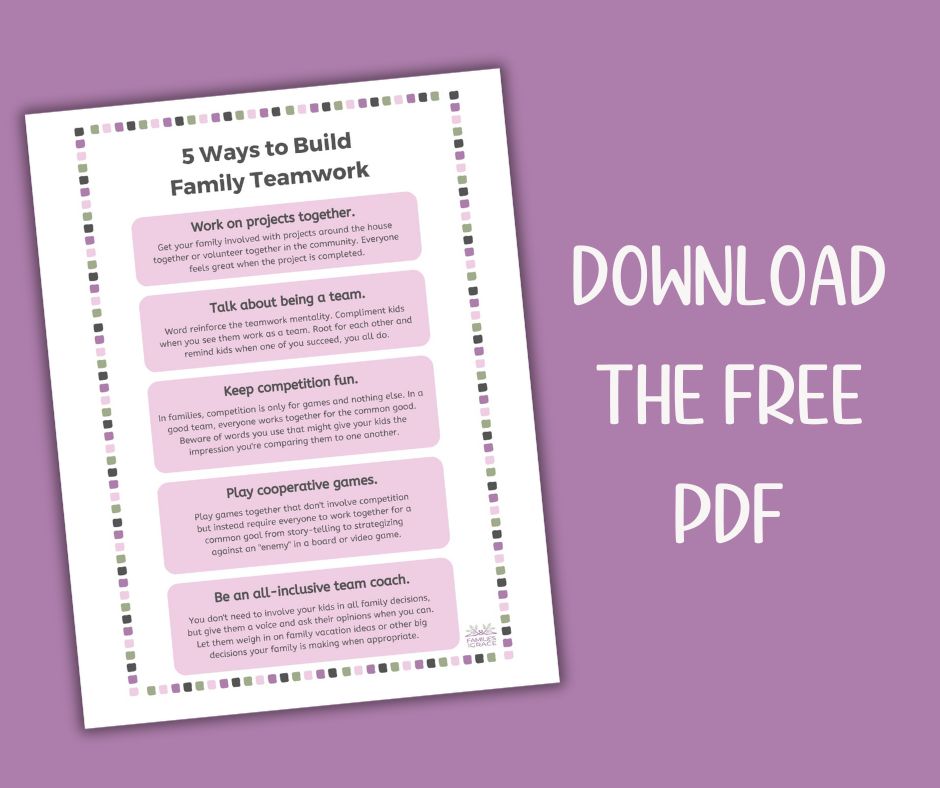How operating as a family team can improve your home life
Early on in our marriage, my husband and I developed an attitude of teamwork. It was us against the world, so to speak. Once we had children, we wanted to create an atmosphere of family teamwork. Having our family working together remains one of our top priorities. We haven’t always been perfect at it, but building the mentality of a family team improves our home life and help us build strong relationships. We use some simple strategies to make that happen.
Why family teamwork matters
One of the biggest aspects of family teamwork is thinking about other people. In this case, it’s thinking about your family members and what they need. As the old saying goes, “There’s no ‘I’ in teamwork.” And I can’t think of a better way to build good relationships within your family than thinking about what each other needs. I’ve seen my children care for and look out for each other (and their dad and me) at different times that I know is a result of our family routine of teamwork.
Another benefit of family teamwork is that you can more easily celebrate victories together. It helps eliminate competition among siblings. We have often told our children that what’s good news for one of us is good for all of us. We’re not competing to see who is the best or who can get the most. We are celebrating the victories along the way and understanding that those victories look different for each of us. Our family has a common goal to succeed and support one another.
Basically, family teamwork encompasses the attitudes I want most for my family. I want us to be a safe spot for each other. I want our family to look out for and support one another while maintaining a good relationship. And I want to make sure each of us know we are part of something bigger. We are all an integral part to our family and the team doesn’t run as well if a member is down.
What family teamwork looks like
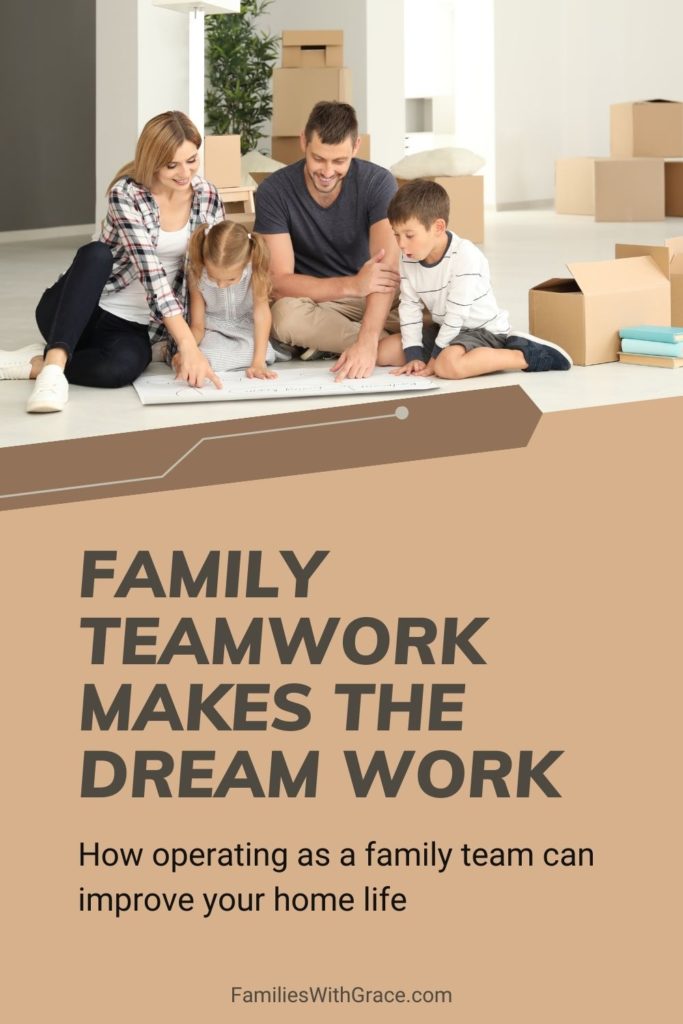
Throughout the years, we’ve seen the family teamwork mentality at work in our family in a variety of ways.
- When our children get a sweet treat without the other one around, they ask for a treat to share with the other so nobody is left out.
- Our kids have worked together to organize their bedrooms and shared spaces. (I mean, two weeks ago, I found them voluntarily working together to sort through and organize their bookcases together!)
- The entire family worked together this summer to redo both of the kids’ bedrooms. We all painted part of my daughter’s bed together, and we all spent an entire weekend sorting through and organizing toys in my son’s room.
- When my daughter is up before me, she makes breakfast for her little brother (and sometimes for me!).
- Our children have teamed up together to plan fun activities like a family yes day.
- We have family laundry folding “parties” and work together to get laundry folded and put away.
Ideas for building family teamwork
You don’t just wake up one day and declare that everyone is a team and that’s the end of it. We’ve been working on it for about a decade now, and we are still finding ways to make improvements. Nobody is perfect by any means. But, there are some things you can do to help encourage teamwork within your family.
1. Work on projects together.
Not much builds teamwork better than working on a project together. Getting the entire family involved in projects around the house helps everyone learn how to work together and builds the family teamwork mentality. Our kids haven’t always been excited about projects we have had them work on with us. We have definitely had discussions about attitude adjustments. We remind the kiddos that we are working together for something to help or benefit our entire family. And we do our best to make sure we also have good attitudes while being clear that bad attitudes won’t be tolerated.
What has ended up happening is that even when the kids grouse about working on a project they don’t want to, they get on board with it. In the end, when we finish the project together, they feel just as good about it as we do.
Another bonus of working on projects together is teaching the kiddos life skills. The kids have helped my husband change the brakes on the car, helped me prepare food, helped clean rooms, helped organize closets and more. Some skills are bigger than others. I wouldn’t trust my 8- and 11-year-old children to change the brakes on the car by themselves, but I love that they have an understanding of how car brakes work and the benefits of being able to do that work ourselves.
Other things, like helping me prepare food, have already paid off as my oldest has really taken a shine to cooking and made dinner for our family as well as multiple other dishes completely on her own. She’s learned the satisfaction of making food for people she loves.
2. Talk about being a team.
While actions speak louder than words in general, words are still important to reinforce the family teamwork mentality. One of our family rules is that we don’t make fun or talk negatively about each other. The best way we’ve found to communicate about teamwork is in small ways in the moment rather than sitting down for a long lecture. Because, let’s face it, long lectures aren’t a great way to get through to kids (or adults!).
Instead, we compliment the kids when we see them working together to help each other or one of us. We will literally say things like, “I love how you guys worked together on that.” When one of our kiddos struggles with feeling jealous of something the other one is doing (one child struggles with this more than the other), we instead help them focus on being happy for their sibling. Because, as we remind them, what’s good for one of us is good for all of us. We can celebrate something good happening to someone in our family knowing there will be times the family will be celebrating with us.
It might sound a bit cheesy, but we also will sometimes give high fives and say, “Go, Team Shannon!” None of us are super into sports, but we are super into being together and working well together. Even cheesy statements help us remember that we really are all a team working together.
3. Keep competition fun.
Competition in families should happen only in games and nothing else. Any other competition is not going to build a family teamwork mentality and will most likely cause it to crumble to the ground. In a good team, everyone is working together for the common good. Nobody is working to look better than their own teammates. Comparing the abilities of our children to each other is not going to help build a team mentality. Instead, it will end up dividing our children rather than bring them together.
And beware of ways your children might perceive that you’re comparing them, even if you aren’t. For example, I grew up as the youngest of two kids. Sometimes I felt like I had to live up to something my older brother did and that my parents were comparing us. Looking back now, they weren’t comparing us. I just felt that way. So I try to be intentional about reminding my kids that they are both doing a great job and they both have different strengths and skills. All we want them to do is their best. Will that look different for them? Absolutely, because they are different people!
4. Play cooperative games.
I’m not necessarily thinking of team-building exercises like trust falls, but I’m thinking more of games in general that you can play together as a family without competition. We even play some competitive games, like charades, without keeping score. Listen, I’m a competitive person. I want to win when I play games. But I have found I most love playing cooperative games with my family that we work together to win.
One of my recent good memories with my family was playing a game of Monopoly together on the Xbox. My husband ran the controller and our family played collectively as one game piece. We each had input on strategies and what we should do as we competed against computer players. When we pulled out a victory after thinking we were going to get beaten, all four of us celebrated together.
Another great team building game we’ve played recently is story telling together using the alphabet. One person starts a story by saying a couple of sentences with a word that starts with letter “A.” The next person starts with a “B” and adds a couple of more sentences. The story builds itself through to the end of the alphabet. Nothing is competitive about the game and it just results in lots of laughs as you work together to tell a story. Ours have taken all sorts of twists and turns I didn’t see coming!
5. Be an all-inclusive team coach.
If we go with a sports analogy for family teamwork, the parents are the coaches and the children are the players. That’s how it ought to be. But that doesn’t mean the team members never get a say in what the team is doing. Though my husband and I get the final say on family decisions, we get our children’s opinions in some matters as we are making plans.
For example, this year we were trying to decide what to do for vacation. My husband and I came up with four destinations and presented all four to our children. As a family we discussed what we liked about each option. Then we talked, voted and came up with our final selection together. When the kids were younger, we didn’t do this, because they were too young to have a say or really care. But as they are getting older, they love being able to have a say in decisions.
Any time you can involve your kids in decision making for your family, go for it. While it does help them build important skills about decision making, it also helps them feel more connected and part of the team. My husband and I definitely make many decisions without their input, because we are the adults and have the experience and wisdom to make good choices. But in other areas, we love to let them be involved. In the vacation example, the kids also learned how much work goes into planning a vacation and finding things for us to do that are fun. Since they got to be involved in the planning, they were even more excited for the trip and we were able to better choose the things they wanted to do.
Check out these other great articles about family life:
10 Ways to have a family life filled with grace, love and faith
Grace-filled sibling relationships
How to have a family yes day (and why you should!)
